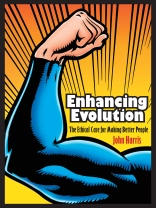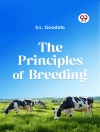In Enhancing Evolution, leading bioethicist John Harris dismantles objections to genetic engineering, stem-cell research, designer babies, and cloning and makes an ethical case for biotechnology that is both forthright and rigorous. Human enhancement, Harris argues, is a good thing–good morally, good for individuals, good as social policy, and good for a genetic heritage that needs serious improvement. Enhancing Evolution defends biotechnological interventions that could allow us to live longer, healthier, and even happier lives by, for example, providing us with immunity from cancer and HIV/AIDS. Further, Harris champions the possibility of influencing the very course of evolution to give us increased mental and physical powers–from reasoning, concentration, and memory to strength, stamina, and reaction speed. Indeed, he says, it’s not only morally defensible to enhance ourselves; in some cases, it’s morally obligatory.
In a new preface, Harris offers a glimpse at the new science and technology to come, equipping readers with the knowledge to assess the ethics and policy dimensions of future forms of human enhancement.
About the author
John Harris is the Lord David Alliance Professor of Bioethics at the University of Manchester School of Law, joint editor-in-chief of the Journal of Medical Ethics, and a member of Britain’s Human Genetics Commission. His many books include
On Cloning and Clones, Genes, and Immortality.












